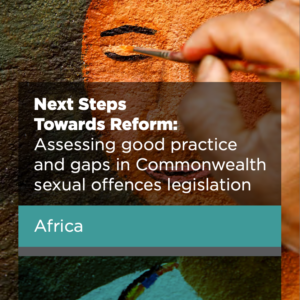Malawi’s sexual offences laws are in the Penal Code 1930 (PC), the Penal Code Amendment Act 2011 (PCA) and the Marriage, Divorce and Family Act 2015 (MDFA).
In 2006, Malawi enacted the Prevention of Domestic Violence Act and in 2013, the Gender Equality Act. However, it did not complement these important reforms with much-needed amendments to the sexual offences provisions in the PC. Most of the PC provisions assessed by this research do not meet good practice standards. For example, rape is limited to penile penetration of the vagina (‘unlawful carnal knowledge’). Other sexual assault offences are not gender-neutral. Rape and sexual assault in marriage is a crime only in very limited circumstances.
There are some specific child sexual assault offences, but these are not comprehensive. The age of consent is 16 years for girls. However, it is 14 years for boys, which is too low. Good practice for sexual offences law requires that the age of consent be the same for every person regardless of sex and that it not be set too low. The child sexual assault offences are also weakened by a failure to provide appropriate close-in-age exceptions or defences, which are necessary to avoid criminalising young people and children who engage in consensual sexual activity with their peers. The legislation criminalises sexual intercourse with a woman who has an intellectual disability regardless of consent, using the derogatory terms ‘imbecile’ and ‘idiot’ to describe her. Malawi maintains the death penalty for rape which is contrary to good practice even though it has never been applied.
The Penal Code criminalises consensual same-sex sexual activity, such as ‘indecent practices’ between males and ‘gross indecency’ between females. The latter offence was introduced into the Penal Code in the latest amendments made in 2011. Laws that criminalise consensual same-sex sexual activity should be repealed and all non-consensual sexual acts, including anal ‘rape’, should be included in the general sexual assault provisions, such as ‘rape’ and ‘sexual assault’, as well as in child sexual offences. All of these crimes should be gender-neutral.
Malawi is a state party to relevant international and regional human rights treaties, including the Convention on the Elimination of All Forms of Discrimination against Women, Convention on the Rights of the Child, Convention on the Rights of Persons with Disabilities, Convention against Torture and Other Cruel, Inhuman or Degrading Treatment or Punishment, and the International Covenant on Civil and Political Rights. It is also a party to the African Charter on Human and Peoples’ Rights and the African Charter on Human and Peoples’ Rights on the Rights of Women in Africa (Maputo Protocol).
Read more about the criminalisation of LGBT people in Malawi.
The full assessment of Malawi is also available here.



